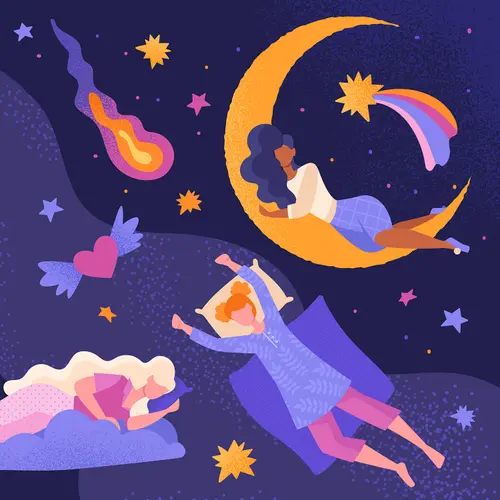By Robson Capasso, MD,as told to Susan Bernstein
I mainly do surgery and treat people with sleep apnea. We’ve seen a recent phenomenon where a growing number of patients are seeking treatment for self-diagnosed sleep disturbances like insufficient sleep duration and insomnia. Many of them are getting a sleep tracking app or gadget. I decided it would help to know which apps/wearables were effective and could be clinically relevant. I initially focused on snoring and OSA, but now we’re looking a bit more broadly.
We found over 2,000 sleep-related apps on both the Apple and Android stores. Their functions range from counting sheep to better diets for sleep. There are some clinically relevant apps, including those that offer behavioral therapy for insomnia, such Sleepio, InsomniaFix, SleepCoach, and Somryst. Even more popular apps like Calm and Headspace both have some modules for insomnia management. There are even apps like TimeShifter to manage or prevent jet lag.
Measuring Brain Waves
While there aren’t any sleep technologies specifically for narcolepsy, I think there are some new products that may be useful. People with narcolepsy have episodes of extreme sleepiness, and since they go directly to REM sleep, they may have episodes where they’re kind of dreaming and awake.
Electroencephalography (EEG) devices like Dreem may be useful in treating narcolepsy. They measure your brainwaves and potentially could tell you when you’re falling asleep or about to fall asleep. You can buy them over the counter. You wear them around your head like a headband.
I see these devices becoming more of a norm, especially as the "tech-savvy" generation gets a little older. You see that already in our clinic. The trick will be how to integrate them and the data they provide seamlessly into your electronic medical record and into our clinical routine. How do we prevent using them from making extra work for patients and doctors? We need to find out what features are actually useful, and we need more clinical evaluation.
With narcolepsy, for example, you’re not going to have a lot of issues with your oxygen. So do you need a device that measures your oxygen or movement while you’re asleep? Not really. That can lead to the phenomenon we call orthosomnia -- an obsession with sleep quality. Some patients are already too concerned about this.
If you want to try one of these devices, definitely coordinate with your doctor.
What Does the Future Hold?
As for the future, there are a couple of things that I think will happen. First, these devices will generate even more data on your sleep. But making good clinical decisions based on information from one night only, in a sleep lab, may be difficult. Having data from multiple nights measuring things like heart rate variability, pulse, and oxygen that we can analyze further will lead to better information. Combining that information with daytime data -- like your heartbeat -- will require processing with artificial intelligence or machine learning algorithms if we want to give people actionable items they can use to change their behavior.

